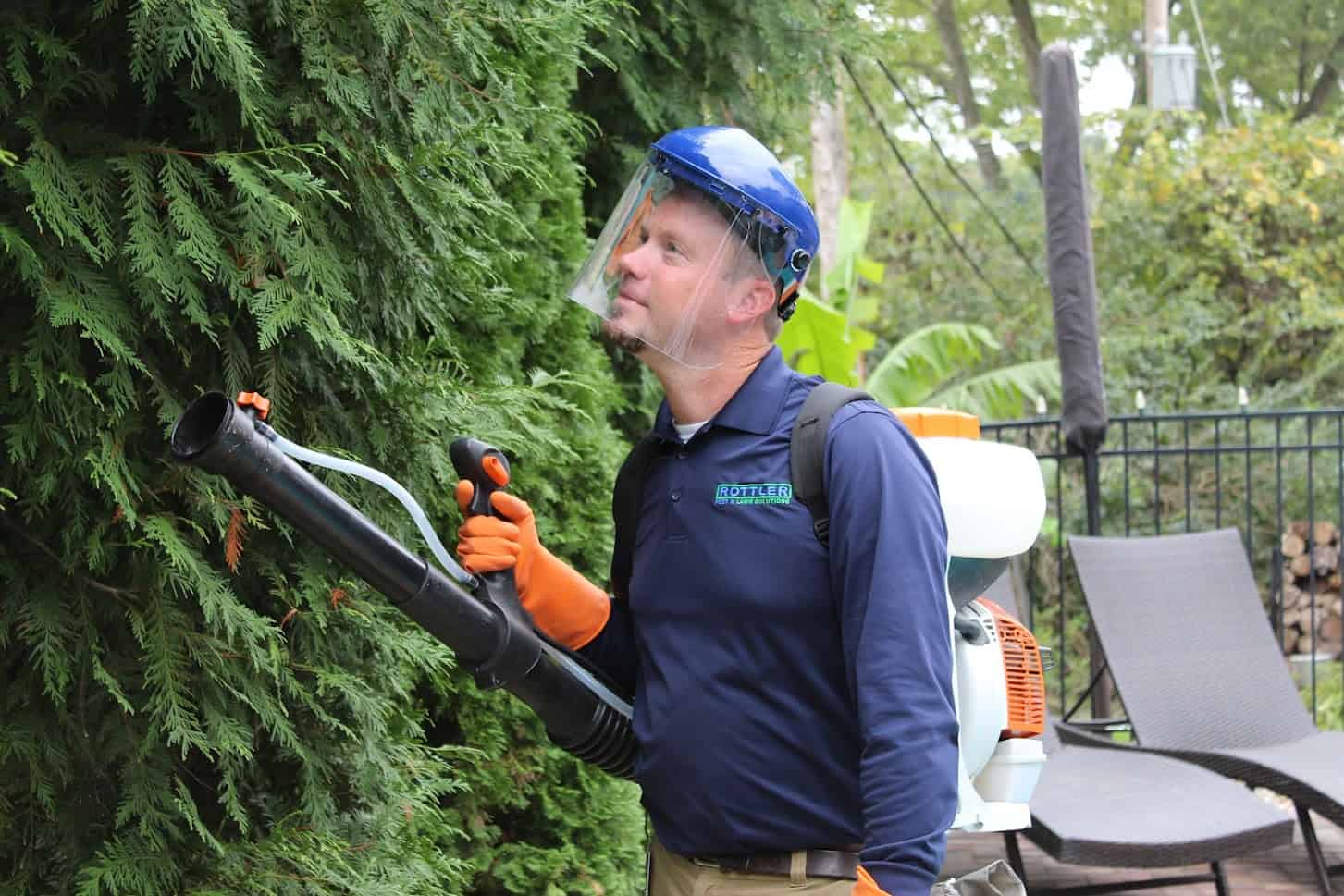The longer, warmer days of spring and summer are not too far off, and neither is mosquito season. Nothing can ruin a hike in the woods, camping trip, picnic in the park or simply relaxing on your deck or patio like the telltale buzz of a relentless mosquito on the hunt for its next meal.
Who hasn’t experienced the itchy, red reminders mosquitoes leave behind? That alone should be motivation enough to get a jump on mosquito season now to protect your yard against these pests.
And while the nuisance factor with mosquitoes is through the roof, Rottler Pest Solutions reminds the public that mosquito bites can have consequences beyond their itchy bite.
Why Are Mosquitoes Dangerous?
Mosquitoes carry viruses (primarily Encephalitis), bacteria, parasites, and more, which can be easily transferred to humans and pets through their bites. With every mosquito bite you get, there’s a risk of serious infection.
The name encephalitis describes the swelling of the brain and spinal cord that can result from an infection by these viruses. One strain of encephalitis virus, called St. Louis encephalitis, was named because of its discovery in the St. Louis area.
Other encephalitis viruses include eastern equine encephalitis, western equine encephalitis, and West Nile virus. Another common pathogen transmitted by mosquitoes is canine heartworm.
Even though mosquitoes are considered one of the summer’s most active pests they also can thrive in the fall and remain active if the temperature is above 60 degrees.
Schedule Free Mosquito Inspection Today!
Where Are Mosquitoes Found?
The midwest is home to approximately 50 species of mosquitoes. Not all these species are found throughout the state, but many are adapted to survive the hot summers and cold winters typical of Missouri, Kansas, and Illinois. Some species are active in the spring, some in the summer, and others in the fall, while others are present during the entire nonfreezing portion of the year. Many of these species are uncommon and seldom pose a threat to human health or well-being.
Mosquitoes can breed in as little as a ½ inch of standing water. Therefore, it is important to regularly check your property for containers – flower pots, birdbaths, garbage or recycling cans, children’s sandboxes – that could be collecting water and providing a place for mosquitoes to breed. Eliminating excess moisture and standing water on your property is the key to effective mosquito control.
Breeding Site Elimination
The most effective method of mosquito control is to eliminate their breeding locations. If mosquitoes cannot find a location to breed, they’ll move on.
- Eliminate or reduce mosquito-breeding sites around the home. This includes birdbaths, flowerpots, grill covers, children’s toys, sandboxes, baby pools, unopened swimming pools, tires, and other objects where water collects.
- Make weekly inspections of the water in flower pots and plant containers. Change the water if you see mosquito larvae. Change the water in birdbaths and wading pools once or twice a week. Turn wading pools upside down when not in use.
- Place tight covers over water-stored cisterns, cesspools, septic tanks, fire barrels, rain barrels, and tubs.
- Dispose of tin cans, old tires, or any other unnecessary water containers.
- Drain and fill stagnant pools, puddles, ditches, or swampy places around the home.
- Clean out gutters of wet leaves and debris that could cause water backup.
- Regularly trim shrubs, plants, and other vegetation. Mosquitoes will breed under overgrown vegetation.
- Remove tree stumps that may hold water.
Don’t let mosquito bites drive you indoors. Spring is the right time to take a preemptive strike against mosquitoes and contact Rottler Pest Solutions. We will first complete a full inspection of your property to identify areas where mosquitoes can breed.
Once we’ve assessed the situation, our trained mosquito control technicians will treat breeding areas with professional products specifically designed to reduce mosquito populations and prevent larvae for extended periods of time.


